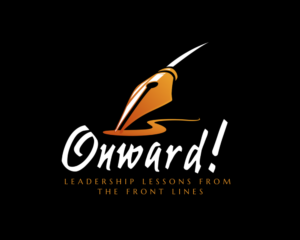One of the great things about leading professional development as a leader is that the lens through which you view and coach others also serves as a mirror upon which to self-reflect. Thus, I find that the more I dig into ways to help my team get better, the more introspection and room for improvement I find in myself. Teach and you will learn, as the old saying goes.
What I saw in the mirror this past month was tough. As I’ve been working with my team to help improve our overall team effectiveness, I’ve come to the brutal conclusion that I have not always been the best teammate. While this is likely a blinding flash of the obvious for those who have served on teams with me, it’s hard to acknowledge because I care so deeply about teams and I have prided myself on being a good teammate. Indeed, I have been part of teams since early childhood. I’ve played on many successful sports teams and captained a few of them, been part of highly successful elite military units, and had a lot of professional success as part of numerous leadership teams. I have spent countless hours studying what makes them work well, why they succeed or struggle, and what leadership can do to improve them. I have always approached the teams I’ve been on with the purest of motives, firmly believing that if the team wins, everyone wins.
So what happened?
To get to specifics, let’s start with what makes a good teammate. Ask five people what makes a good teammate and you’ll get eight opinions. There are more lists on the internet about what makes a great teammate than you can count. In my mind, however, it comes down to two basic things: Trust and belonging. I use these two because they incorporate many of the more specific traits that contribute to being a good teammate.
Trust. There are really two types of trust. The first involves confidence and confidentiality. Do you keep confidential what is supposed to be confidential? This includes gossip, talking out of school, or disclosing anything relating to the team you are not supposed to. Violating this leads to unwanted drama at best and significant business risk at worst. When most people talk about trust, this is what they talk about.
The second type of trust involves performance. Do you do what you say you will do when you say you are going to do it? Can people rely on you to perform to a high level?
The challenge with trust is we get the two confused. For example, when trust breaks down on professional teams, it is often the performance type of trust; however, to the person who is told they are not “trusted”, they hear an attack on their integrity and get upset. This is why having people on your team who are not performing is so damaging to the team — it breaks down trust. There are few things worse than a teammate who says, “I got it” but doesn’t get it done or does it so poorly as to not count.
Belonging. Belonging is more difficult but it is about fostering a sense that the people on the team belong on the team. Good teammates foster this. They put the best interest of the team ahead of their own. They show respect to everyone on the team. They cheer for the success of others on the team. They embrace their role and act unselfishly. And they support their teammates when they are struggling.
How do you signal trust and belonging? This is where my challenge has been. Because intentions don’t matter – it is all about how your actions are interpreted by other members of the team. I might be acting with the purest of motives but if the team receives my actions as signaling a lack of trust or trustworthiness or threatening some type of belonging, the team is worse off.
Listening is a great example. I have gotten lots of feedback that I’m not a great listener. I have struggled with this because I focus on it and try to listen very intently. In trying to understand where I’ve fallen short, I’ve realized that I can get too eager. I get so excited by the conversation that I tend to jump in too early. I want so badly to signal that I’m listening that I interrupt them. Ironically, far from showing respect and belonging through active listening, I can come across as selfish and disrespectful. Crap.
My other challenge has been the very act of challenge. I love discussions. I think out loud. I love debate and the vigorous back and forth regarding tough problems. I also believe open debate makes teams stronger and ideas better. If an idea can’t stand a little challenge it isn’t worth much. Indeed, conflict is so important that it is the second level of Patrick Lecioni’s Five Disfunctions of a Team. My challenge has been timing. I’ve wanted to discuss or debate an idea when the leader hasn’t wanted it or the timing was poor. When waved off, I’ve gotten hurt (not feeling heard or valued) and pushed harder, creating significant discord and discomfort. Again, I’ve done it with the best of intentions — wanting to make the decisions better and the team stronger — but have ended up causing discord and discomfort for the leader and – by extension – the team. Instead of fostering healthy debate, I came across as selfish and not trusting of the leader. Worse, I came across as if I knew better, putting my own desires ahead of the team.
Why share all this with you? First, many of you already know this. Most people are the last ones to learn of their own challenges. And second, we all face challenges to being a good teammate, whether we realize it or not or whether we want to acknowledge it or not. Finally, I owe more than a few teammates an apology. I promise I had the best of intentions but clearly could have been a better teammate.
So what are the leadership lessons?
- Good Intentions are not enough. Leadership, like the road of life, is paved with good intentions. Having the best intentions isn’t enough. Actions matter. Did you violate trust? Did you actually do what you said you’d do? Did you make a person feel small through poor listening, reacting badly or sending a crappy email? Before you answer these questions, remember that you have to think about how your actions are received by others around you. Being a good teammate, like beauty, is in the eye of the beholder.
- Being a good teammate is not something you are, it’s something you DO. Teamwork is a verb. It requires action. It takes constant work. You can be a great teammate for a long time and in many ways, but you can be a lousy one at other times. You can also be great in all respects most of the time and downright crappy a few times. If the behavior is too bad, it destroys trust and thus, belonging. The problem with trust is that it takes a long time to build and very little to destroy. My old coach used to say, “Trust is like a bucket of water, sitting under a dripping faucet. The trust bucket fills up one drip at a time, very slowly, but it can be spilled in great quantities very quickly. When that happens, all you can do is clean up the mess, right the bucket, and let it begin to fill up again.” Thus, trust must be guarded carefully.
I’d love to hear your thoughts on teamwork and what makes a good teammate. Are there other things I’m missing? Who is the best teammate you ever had and what made them so good?
Have a great week.
Onward!
Jeff





